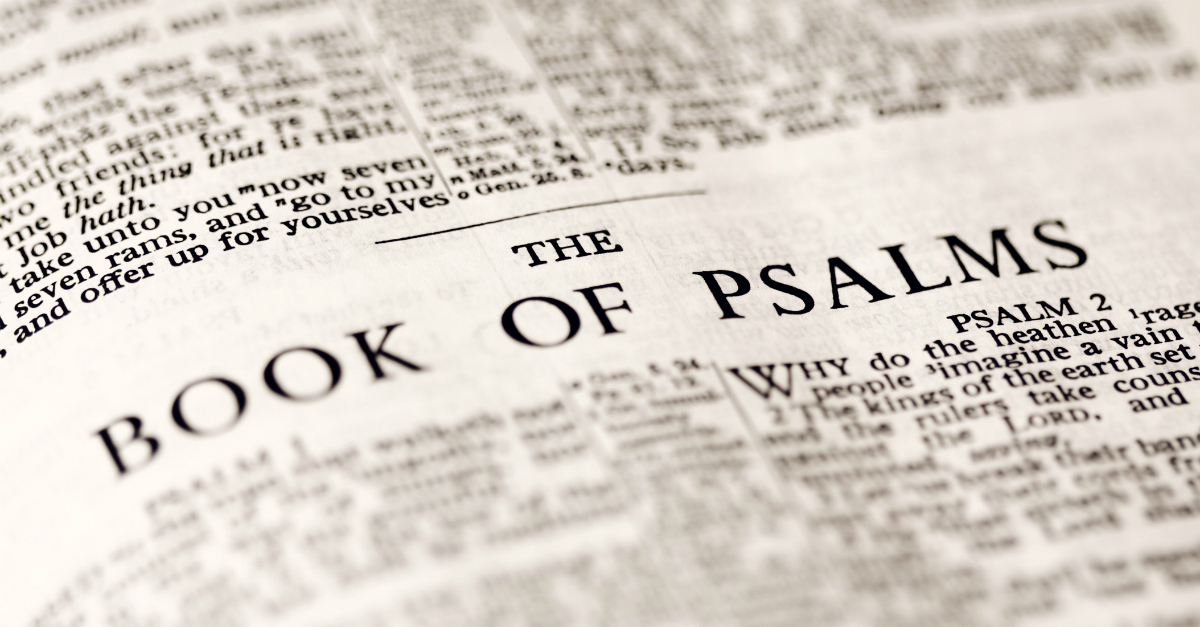What Are the 5 Different Types of Psalms?

In the past, I read the different types of psalms as part of my daily prayer time. I would try to read and meditate on a psalm a day. Other times I would use a method like S.O.A.P. to take a deeper dive into understanding the psalm. The beautifying and edifying part of psalms is how they were written to be sung and prayed. But did you know there are different types of psalms? Just like today’s modern worship songs: the psalms were written with a range of emotion, mood, and expression from victory, praise, celebration, and other times, the psalms were applicable to heavy and deep grief.
What Are the 5 Different Types of Psalms?
The Hebrew word for psalm, mizmôr, means “melody.” You won’t find this word anywhere else in the Bible—only in the titles of the Psalms. Later when the psalms were translated into Greek, the word psalmos was used for mizmôr. Psalmos means originally, “plucking of strings, or “songs for harp.” The book of Psalms is the longest book of the Bible, with 150 “chapters”— called “psalms” or “songs.” Psalms is divided into five books:
Book 1: Psalms 1—41
Book 2: Psalms 42—72
Book 3: Psalms 73—89
Book 4: Psalms 90—106
Book 5: Psalms 107—150
No one knows why the book of psalms is divided into these five categories. Some sources suggest the division is based on the five books of the Torah (Genesis to Deuteronomy). These categories are not based on authorship nor chronology as some would guess. They have been written by several different authors including King David, Solomon, Asaph, and the sons of Korah. These beautiful words where we find comfort and victory were written over a 1,000 year period. There are five main categories of psalms with an additional category that is considered a “mixed type” or smaller genre: Thanksgiving, Praise, Royal, Lament, and Hymns.
What Does Each Type Mean?
Psalms of Thanksgiving: One of the best-known thanksgiving psalms is Psalm 100. Verses 4-5 proclaim, “Enter his gates with thanksgiving and his courts with praise; give thanks to him and praise his name. For the Lord is good and his love endures forever; his faithfulness continues through all generations.”
Psalms for Royalty: The king was often the patron of the temple, and this was the case in Jerusalem. These psalms are historical windows of Israel before the Babylonian exile, when there was still a king on the throne. These Psalms include Psalms 18:50, 20, 21, 45, 72, 89, 110 and 132.
Psalms of Wisdom: The wisdom psalms teach us to cultivate our hearts and minds that focus on what truly matters like our eternity and relationship with God rather than living for short-term gain. Some of these psalms include Psalms 1, 14, 73. 112, and 119.
Psalms of Lament: These psalms are just that, poems and songs that express human struggles of anguish, depression, heartbrokenness, and sadness, injustice, or complaints against God’s enemies. For example, Psalm 130:1, “Out of the depths I cry to you, O Lord; Lord, hear my voice!” These psalms include Psalms 6,12, 38, and 86.
Psalms of Praise: The Psalm of Praise is a poetic expression of praise and exaltation towards God from its authors. Some of these psalms include Psalm 8, 42, 43, 103, 145, and 150.
How Each Type of Psalm Can Help Us in Different Situations
Now that we know a little history and have a better understanding of the five different types of psalms, we can apply it to our spiritual walk and everyday life. In fact, the book of Psalms seems to be a favorite book of the Bible, and it’s easy to see why. They are a unique treasure of words that connect a Christ follower’s head and heart in a vivid and rich way. These Psalms help us express every emotion we experience as believers living in a broken world. Each of these psalms can be used in different situations of our lives just as they did when they were written thousands of years ago.
Use the Psalms to Cultivate a Deeper Prayer Life with God
In times of waiting or desert periods, have you ever prayed, “Why,” or “How long O Lord?” Have there ever been moments when you were so full of anger, tension, emotion, or heartbreak that you didn’t know what to pray? The book of Psalms reflects the ups and downs of our humanity. We can use the psalms of lament, and psalms of wisdom as a way to connect deeper with God. It allows us to come to Him in difficult times and teaches us we can approach God any time. We are especially blessed to have been given the book of Psalms because it reveals the journeys, struggles, emotions, and triumphs of other Christ-followers who have gone before us.
Use the Psalms to Behold Our Savior
Sometimes there are no words to express how deeply grateful we are for our Savior. The psalms can help us praise, come to Jesus in reverence, and honor Him. The psalms of royalty emphasize God’s promise to David that he would have an eternal kingdom (2 Samuel 7; 1 Chronicles 17). They also remind us of His saving grace and are applicable to other monumental moments in our lives such as a coronation song, a wedding, and prayers for the president and our mighty King of kings. These psalms emphasize God’s promises to His people and as we read them, we too, are reminded that God kept His promises.
Use the Psalms to Cultivate a Godly Emotional Life
The psalms give us a road map to navigating our life’s journey. We weren’t promised a problem-free life. In fact, we were guaranteed the opposite. Yet, the Psalms reveal the struggles other Christ-followers faced and how they turned to God. The beautiful promise we have is that while we are promised trouble, our Savior has overcome our problems because He has overcome the world (John 16:33). The Psalms show that sharing life with God involves coming to him in all circumstances such as gratitude and joy, lamenting hardships, celebrating all the good things, asking for our needs to be met, asking for comfort in the waiting, and even sharing our rage and sorrow against the injustice of this world. C. John Collins put it this way: “The psalms do not simply express emotions: when sung in faith, they actually shape the emotions of the godly.”

Photo Credit: ©GettyImages/CaseyHillPhoto
Use the Psalms to Cultivate a Thankful Heart
The Psalms can help shape our hearts, minds, and perspective. We can use the Psalms of gratitude to celebrate God’s works and goodness. In fact, God desires us to be thankful – in fact, thankfulness is his will for us because it sets our hearts free from living in a broken world.
Use the Psalms as a Way to Lament and Mourn
It’s easy to focus on the pain or the struggle. And if we aren’t careful about how we lament and mourn, it can turn into bitterness. We can find ourselves stagnating and stuck. Yet, the Psalms of lament remind us how to mourn, complain, and lament in a healthy way.
The psalms are packed with pure and honest heart cries of people who found themselves in all sorts of circumstances. From those who became King to those who faced persecution. The vast majority of Psalms came pouring out of hearts torn with pain and turmoil. These are the songs of God’s people lamenting to him in the midst of loss, trials, and heartaches. But these songs are a beautiful refuge when life gets tough because the psalms remind us of the power found in praise—regardless of whether we are worshipping in good or bad circumstances. The psalms of lament point us to find solace and comfort in God’s presence. They also remind us that mourning lasts for the night but joy comes in the morning because of how faithful our mighty God is.
If you’ve never considered using the psalms as a way to pray, praise, or lament—I encourage you to look at it as if this book is a beautiful treasure meant to soothe, build up, and restore your spirit. Let Psalms 100 be the first you use in your prayer time as a gratitude prayer to God.
Shout with joy to the Lord, all the earth!
Worship the Lord with gladness,
Come before Him, singing with joy.
Acknowledge that the Lord is God!
He made us, and we are His.
We are His people, the sheep of His pasture.
Enter His gates with thanksgiving;
go into His courts with praise.
Give thanks to Him and praise His name.
For the Lord is good. His unfailing love continues forever,
and His faithfulness continues to each generation.
Related: Listen to our podcast, Teach Us to Pray with Christina Patterson. You can find all the episodes at LifeAudio.com. You can listen to an episode right now by clicking the play button below:
Photo Credit: Unsplash/Lilian Dibbern

Originally published October 14, 2021.







